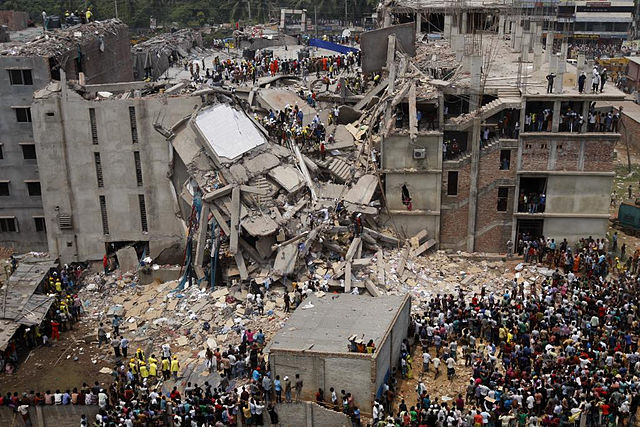
In the article “’We Can’t Compete on Human Rights’: Creating Market-Protected Spaces to Institutionalize the Emerging Logic of Responsible Management“, which has just come out at the Academy of Management Journal, Nora Lohmeyer, Sarah Ashwin and myself argue that the protection of labor and environmental standards in the global economy relies on the construction of “market-protected spaces”, institutionally bound spaces that suspend the dominance of the market logic on selected issues based on a binding regulatory infrastructure that allows prioritizing responsible management practices. This conclusion is based on years-long research on the consequences of the deadly Rana Plaza accident in Bangladesh in which thousands of garment workers were killed or injured. Our research shows that voluntary corporate social responsibility (CSR) initiatives are not enough to address systemic, complex social or environmental problems in the global economy. We agree with De Bakker, Matten, Spence, and Wickert (2020), who
see an urgent need to address an “elephant in the room” of corporate social responsibility (CSR) research: the systemic constraints exerted by the current economic paradigm that might not be reconcilable with responsible business conduct.
After theorizing the concept of a market-protected space as a contribution to the institutional logics literature, we summarize the more general implications of our findings for managers, policy makers and anyone else interested in making the global economy more responsible as follows:
Our study of a global industry struggling with responsibility issues for decades strongly indicates that we cannot solve market problems with market mechanisms alone. Managers and stakeholders in this industry have tried to ‘embed’ the market by building a complex voluntary CSR infrastructure, but are now trying to develop a binding alternative that more actively engages with the underlying collective problems at hand. Thinking about the institutionalization of the emerging responsible management logic in terms of placing boundaries on the market logic helps us to address bigger questions about the future of capitalism. With the crisis of capitalism inextricably linked to humanitarian and environmental crises, we see renewed struggles over embedding the market between right-wing and progressive movements (Polanyi, 1944). Protecting labor or environmental standards from the “iron cage” of today’s capitalist market order, which enforces its norms “until the last ton of fossil fuel is burnt” (Weber, 1904/05), can pave a way out of a particular kind of capitalism that has defeated the most vulnerable stakeholders under the banner of voluntarism (Marens, 2012). Constructing market-protected spaces is a multi-level, contested process, the prospects of which remain uncertain. Yet, in areas where society decides that other values should take priority over competition and profitability, market-protected spaces offer a potential means of facilitating such prioritization.



Leave a comment
Comments feed for this article